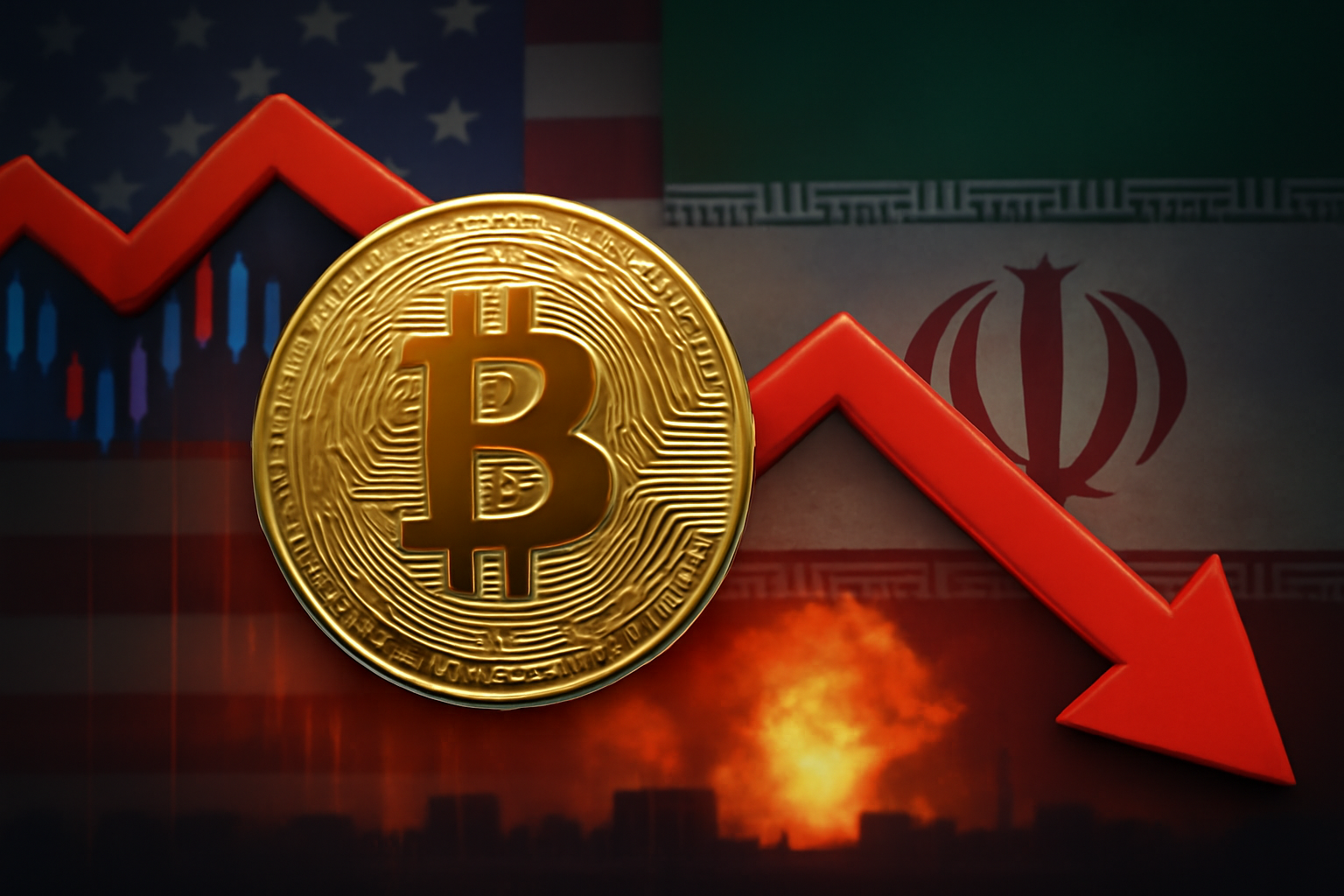Bitcoin Loses Ground as Geopolitical Tensions Trigger Risk-Off Sentiment
After months of relative stability and institutional momentum, Bitcoin has once again shown its vulnerability to macro shocks. On June 13, the world’s largest cryptocurrency plunged below $103,000 following reports of Israel launching coordinated airstrikes on Iranian nuclear and military facilities. The attack, which marks a major escalation in Middle East tensions, triggered a broader risk-off wave across global financial markets, including equities, commodities, and crypto assets.
Ethereum, Solana, and other major altcoins followed suit, with most of the top 20 cryptocurrencies posting losses of 5–12% within hours. As global investors scrambled to de-risk portfolios, even “digital gold” failed to hold its ground — renewing questions about crypto’s role as a safe haven.
Why This Matters for Investors
Despite its reputation as a hedge against fiat devaluation and geopolitical instability, Bitcoin continues to behave more like a high-beta risk asset than a safe store of value. According to Barron’s, this drawdown marks Bitcoin’s worst single-day performance since January and wipes out nearly $150 billion in crypto market cap globally.
“Bitcoin is no longer viewed as a purely alternative asset,” said Matt Hougan, CIO at Bitwise Asset Management. “It’s embedded in mainstream portfolios now, which means it’s subject to the same macro stress as equities or commodities.”
The selloff reveals the crypto market’s growing correlation with traditional financial markets, especially during times of crisis. While digital assets have made headway in institutional adoption, their susceptibility to sentiment-driven pullbacks highlights lingering volatility risks.
Core Analysis: Geopolitics, Liquidity, and Fragile Confidence
1. Middle East Conflict Rattles Risk Markets
The Israel-Iran conflict immediately roiled energy markets, pushing crude oil up over 7% and igniting fears of regional instability. Historically, events in oil-producing regions have led to broader financial market turmoil. Crypto, once viewed as geopolitically neutral, is now closely tied to investor sentiment around global security.
2. Flight to Traditional Safe Havens
As the conflict escalated, money flowed into U.S. Treasury bonds, gold, and the U.S. dollar. Meanwhile, Bitcoin and Ethereum saw over $2.3 billion in outflows from major exchanges, according to Glassnode data. Institutional holders likely led the exits, signaling a shift toward capital preservation strategies.
3. Leverage Unwinding Accelerates Volatility
Overleveraged long positions across crypto derivatives were liquidated rapidly. Per Coinglass, more than $610 million in positions were wiped out in 24 hours, driving sharp intraday volatility and compounding losses across the board.
What Investors Should Watch Next
- Volatility Indicators: The Crypto Volatility Index (CVI) surged to its highest level since March. Expect more price swings until macro stability returns.
- Central Bank Policy Response: If oil-driven inflation rises again, the Fed may delay interest rate cuts — a potentially bearish scenario for all risk assets, including crypto.
- Crypto-Specific Catalysts: Upcoming ETF decisions, Ethereum upgrade news, and regulatory clarity in the U.S. could act as positive counterweights to macro headwinds.
- Middle East Developments: Continued escalation or international sanctions could prolong risk aversion, especially if oil remains above $80 per barrel.
Key Investment Insight
Bitcoin’s drop below $103K is a critical reminder of the crypto market’s sensitivity to global events. While blockchain fundamentals remain strong, investors should treat cryptocurrencies as part of a diversified portfolio — not as uncorrelated safe havens.
Those with long-term conviction might view dips as buying opportunities, particularly for assets like Bitcoin and Ethereum with strong institutional backing. However, it’s essential to balance exposure with defensive positions in gold, short-term bonds, or stablecoins during high-volatility periods.
Stay Ahead with MoneyNews.Today
Crypto markets move fast — but geopolitics moves faster. When global shocks collide with digital finance, informed investors must stay sharp.
Follow MoneyNews.Today for expert coverage of market-moving events, actionable insights on crypto, and intelligent strategies for navigating tomorrow’s digital economy.





